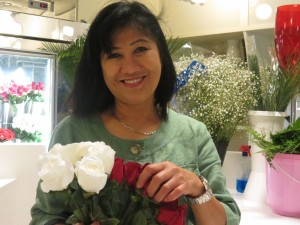1. What is disaggregation of the audience?
Disaggregation of the audience is having different audiences’ segments.
2. Why has journalism’s credibility declined since the 1990s?
The journalism’s credibility declined because of the rise of inaccurate sources.
3. How do journalists use the Internet?
journalists use the weblogs to interact with their audiences.
4. What is transparency as it relates to the profession of journalism, as a way of rebuilding trust with readers?
Journalist can build trust by being unbiased as well as being trustworthy, reliable and accurate.
5. When anthropologists observed primitive cultures, how did such cultures define news and what qualities did they look for in messengers?
In my opinion, most cultures and people share the same definition of what does news mean and they often have same messengers’ qualities.
6. Though you may not subscribe to a newspaper or consistently watch the news on television, do you feel generally aware of what’s going on beyond your direct experience? Are you the first or the last to know important things? Do you have “a hunger for awareness”? When meeting a friend, do you share information, such as “have you heard about…?”
I personally think that nowadays we feel aware of what’s going on without watching the news, and that’s because of our smart phones. Friends and family members send and share the updates through social networks which makes us updated especially in terms of things that are happening locally.
7. Why do we need “the news”? To “protect ourselves, bond with each other, identify friends and enemies,” the authors write. They quote author Thomas Cahill, who said you can tell “the worldview of a people…the invisible fears and desires…in a culture’s stories.” Why do you need “the news,” if you do? What stories do you tell yourselves?
In my opinion, news are important because we need to be aware of what’s going on, what’s new and what are the updates so that we keep up.
8. What are the 10 elements of journalism?
– Journalism’s first obligation is to tell the truth.
– Its first loyalty is to citizen.
– Its essence is a discipline of verification.
– Its practitioners must maintain an independence from those they cover.
– It must serve as an independence monitor of power.
– It must provide a forum for public criticism and compromise.
– It must strive to make the significant interesting and relevant.
– It must keep the news comprehensive and in proportion.
– Its practitioners have an obligation to exercise their personal conscience.
– Citizen, too, have the rights and responsibilities when it comes to the news.
9. Without independently-reported news, what will replace it? a) rumor; b) self-interested commercialism or infotainment, according to the authors. Can you think of examples of this in your own life?
I personally think that independently news can be replaced by rumors.Because rumors spread really fast and reach a lot of people.



